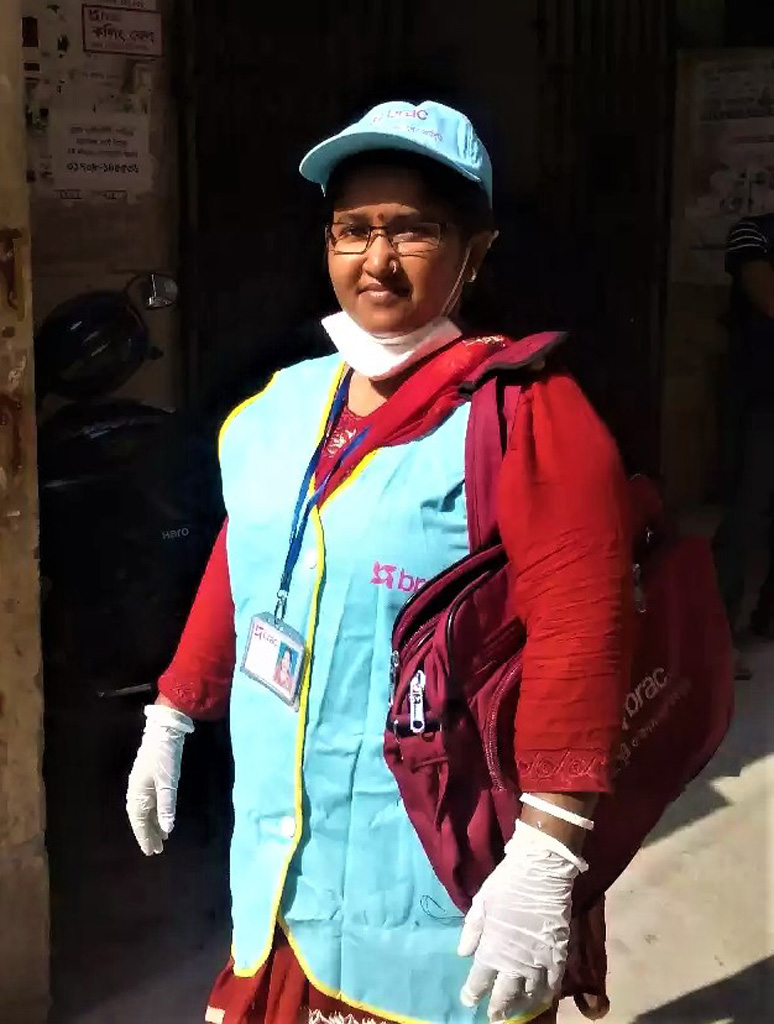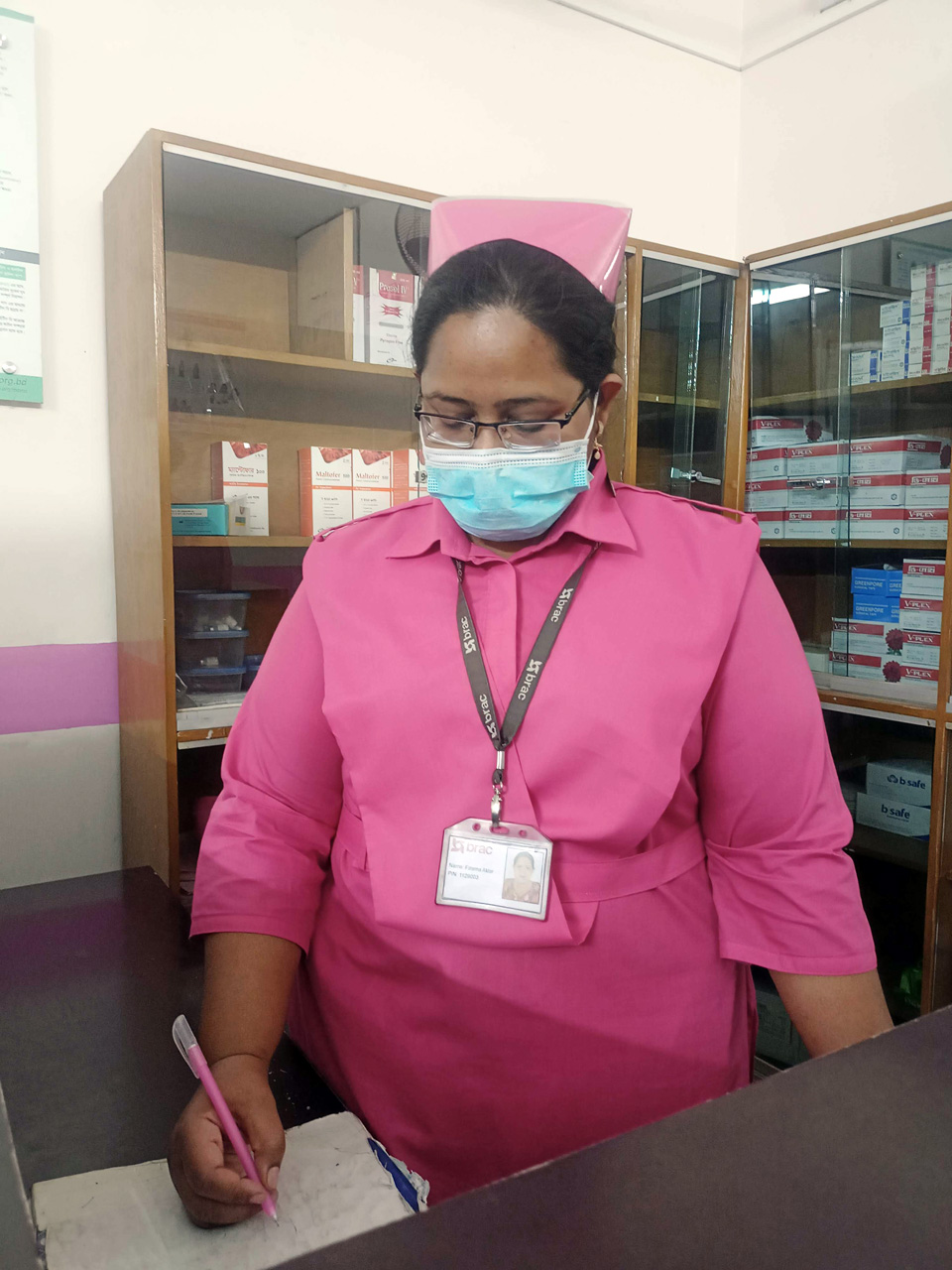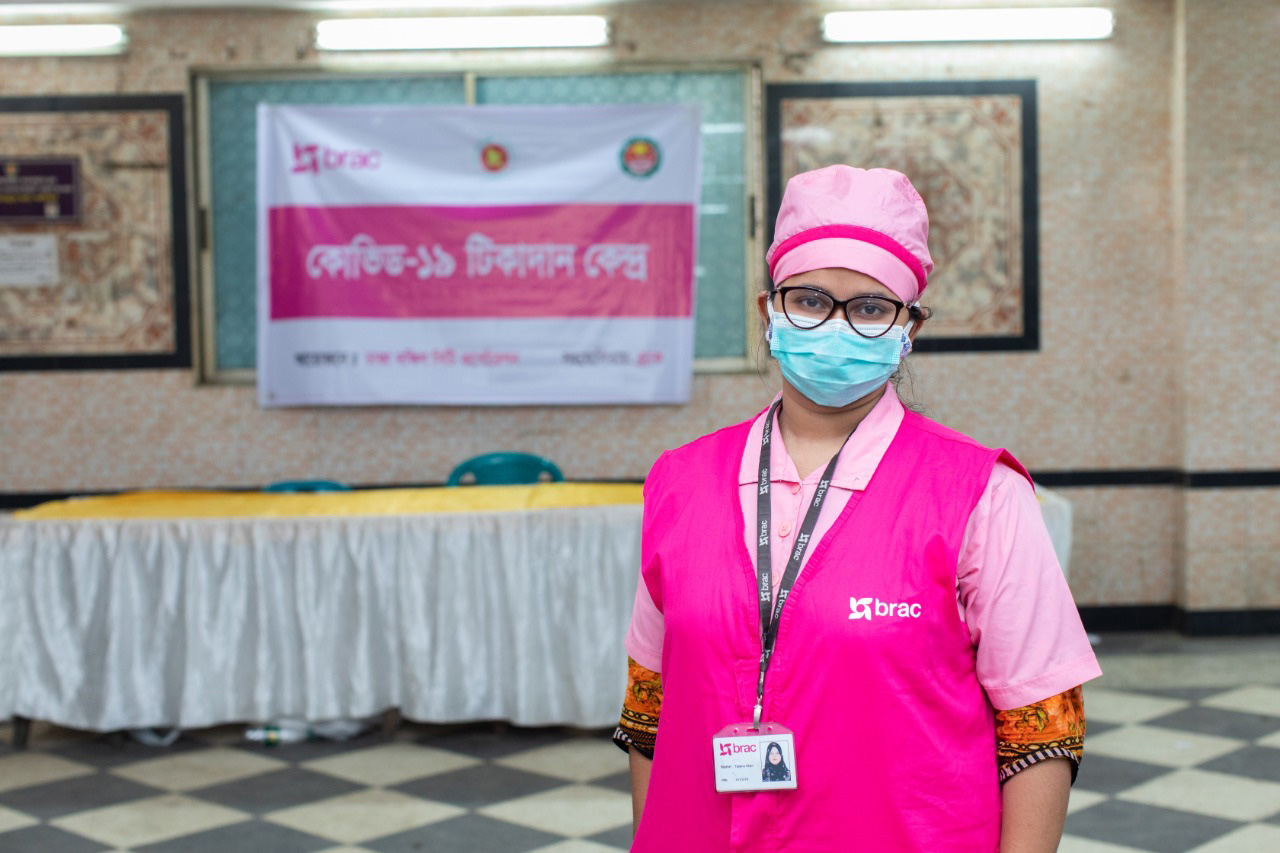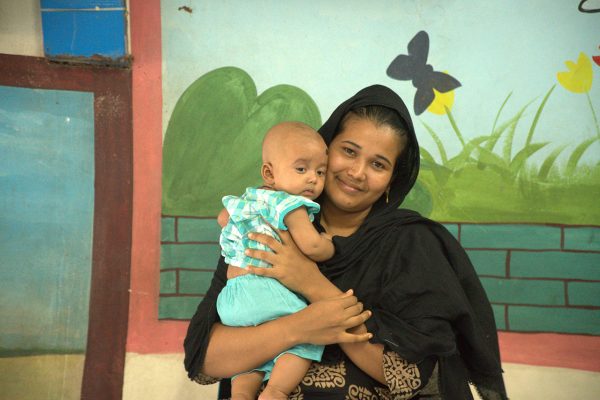Superheroes on the ground: BRAC’s frontline health workers
Reading Time: 3 minutes
The journey of BRAC’s frontline health workers has not been easy. They are women who defy patriarchal norms everyday in order to serve their communities – and save lives in the process.
Warriors, superheroes, guardians.
These words might remind us of tall, muscular characters, perhaps with superpowers. People with a responsibility of saving the world from decay.
Looking back at BRAC’s 50 years journey, we would like to challenge this popular idea by highlighting superheroes of our own – our community health workers and volunteers.
They do not have supernatural powers, but they save lives. They challenge gender stereotypes and break barriers everyday to safeguard the wellbeing of their communities. We invite you to read the inspiring stories of three of our superheroes on the ground.
Shipra Rani Mridha, community health worker

Photo credit: Sanjida Afrin © BRAC 2020
“During the onset of the pandemic, many people were afraid that if they tested positive for COVID-19, they would be treated as outcasts – or even be arrested by the police. Misinformation and stigma became a challenge in ensuring proper care of potentially infected individuals.
“The beginning of the pandemic had put health workers like me in a challenging situation. I had never seen such fear in the community before. My own family was scared to let me go out. My husband used to ask me why I had to go to the field when everyone was staying home.
“I used to explain to him how I helped communities by educating people to protect themselves from the virus, and where to seek help if they have symptoms. Because of me, many families living in the slums understood how serious the pandemic was, and they took necessary precautions.
“I would ask him ‘Aren’t you proud?’, and he would smile and nod.”
-Shipra Rani Mridha, community health worker, Dhaka, Bangladesh.
Fatema Akter, midwife

Photo credit: Oitijjho Anwar Ohi © BRAC 2022
March 2020 – the pandemic had just hit Bangladesh and the country was put under lockdown. Fatema Akter, a midwife at BRAC’s maternity centre, received a call from a patient’s husband. The patient had begun having labour pain, and they needed her.
Hanging up, Fatema put her protective gear on, walked all the way to the patient’s house, and brought her to the hospital. After three hours of labour, the mother gave birth.
Due to the lockdown, no family members could visit the mother and baby. Fatema ended up staying with them for three days in the hospital. She also cooked and shared her food with the mother as there wasn’t anything available outside.
When the lockdown began in Bangladesh, midwives like Fatema used to bring their change of clothes and food to work, so that they could stay at the office for days to provide healthcare services.
Tanjina Akter, COVID-19 vaccine administrator

Photo credit: Abdullah Hil Kafi © BRAC 2021
“Women can do anything in the world, if we believe it in our hearts.”
Tanjina Akter joined BRAC as a midwife five years ago, but her life took a turn when the pandemic hit Bangladesh. The shortage of health workers left her wanting to do more to help.
Besides being a midwife, Tanjina trained to become a mass vaccinator to address the shortage of vaccine administrators in the country. Since then, she has been playing the dual roles of a midwife and mass vaccinator for BRAC.
“I had always been a shy person. I never thought I could unravel my strengths of communicating with people, let alone calming people who are afraid of needles during vaccinations, until I joined BRAC,” says Tanjina.
“I realised women are made of so much more than we get opportunities to reveal. With the right resources, environment, training and inclusion, women can flourish in the frontlines of any battle.”
Shipra, Fatema and Tanjina represent all the frontline workers who meet with obstacles every single day in order to serve their communities and country.
Most of the people on the frontlines of BRAC are women. Marking the special occasion of BRAC’s 50th anniversary, we want to thank our 50,000 frontline health workers for embracing the challenges and rising up to become superheros for their respective communities, amid the pandemic and beyond.
BRAC Health Nutrition and Population Programme caters to the healthcare needs of over 80 million people across Bangladesh, through a combination of community-based and facility-based services. Its community-driven healthcare approach employs 50,000 community health workers and volunteers who deliver quality affordable care to populations living in the most deprived and vulnerable conditions. BRAC’s community health workers are all women, who deliver door-to-door primary and essential healthcare, and facilitate linkages with formal providers.
To learn more about how BRAC’s healthcare model evolved over the past 50 years, read this article: 50 years of serving Bangladesh: Community healthcare to pandemic response.
Tanjila Mazumder Drishti is Senior Manager, Najia Sultana is Deputy Manager, Scionara Shehry is Manager and Sanjida Afrin is Deputy Manager at BRAC Health Nutrition and Population Programme.





